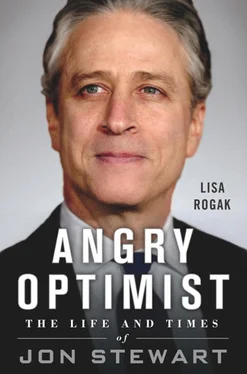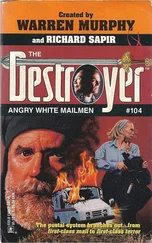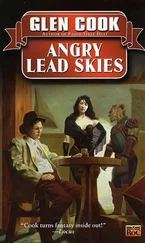When The Daily Show debuted on July 22, 1996, it was structured like any local newscast you could switch on anywhere in the country. Kilborn served as the news anchor, reading a few national news stories, which were followed by a few in-studio segments and field pieces from a correspondent or two. Since The Daily Show billed itself as a fake-news show from the beginning, the correspondents’ stories followed suit. But the set’s appearance fit the format.
“We just told the designers we wanted something that Ted Koppel would want for Christmas,” said writer J. R. Havlan, who joined The Daily Show in 1996 when Kilborn started as host.
With Kilborn moving to take Snyder’s job, there was an empty host’s chair to fill at The Daily Show . Madeleine Smithberg, a producer who had worked alongside Jon on his previous show at Paramount, was now working at The Daily Show, and she thought Stewart would make a good host.
Stewart was under consideration—yet again—and he expected to come in second place as he had numerous times before. But he got one of the biggest surprises of his life when Comedy Central executives offered him the job. In addition to being The Daily Show host, he’d also share a co-executive producer credit. They struck a deal, signing him to a four-year contract paying him $1.5 million a year.
“There was only one name that came up,” said Comedy Central president Doug Herzog. “We found the most talented free agent in the market.”
“Jon will have a wider appeal to a greater age and gender,” agreed Eileen Katz, senior vice president of programming at Comedy Central. “There’s something that’s more accessible about Jon as opposed to that whole National Lampoon school of comedians and hosts that looked very Ivy League and Midwest.”
Many critics looked forward to his debut—and to getting rid of Kilborn. They—along with viewers—disdained Kilborn because of his almost constant smirk and frat-boy approach that infected the overall tone of the show and theme of many of the sketches. “He’s certainly witty enough and articulate enough to host his own show, especially if he’s replacing a guy like Craig Kilborn,” said Adam Buckman, a TV columnist at the New York Post. “Jon’s actually more talented at this sort of thing and can come up with funny things off the top of his head.”
Stewart was ecstatic, and viewed the job as “sitting around with funny people, banging out jokes, and creating a television show. I have no hobbies, no outside interests,” he said. “I’m fine with spending fourteen hours a day putting a show together with tape and string.”
At the same time, he was realistic enough to know that his chances for longevity were not in his favor. “Whenever you take over something that is popular and has a fanatical following, you’re never going to please everyone,” he said. “The trick is to have enough wherewithal to follow through with what you want to do with it and give it time to evolve.”
For once, he had come in first. But he had his work cut out for him. There had been a definite tension on the set, specifically between Kilborn and co-creator Lizz Winstead. Even though Winstead had been heavily involved in the initial development of the concept of The Daily Show, she had not been involved in the final decision about the show’s first host.
“I spent eight months developing and staffing a show and seeking a tone with producers and writers, but somebody else [hired Kilborn],” she said. “There were bound to be problems since I viewed the show as content-driven while he viewed it as host-driven.”
Eighteen months after the debut of The Daily Show, things had only gotten worse. In a 1997 Esquire magazine interview Kilborn made a few negative comments about the women who worked at the show, even calling them “bitches.” He also said that he knew Winstead would “do a Monica Lewinsky” on him. When the magazine came out, the network suspended Kilborn for one week. Winstead quit shortly afterward.
Even with Winstead gone, the atmosphere on the show remained toxic. Several reviewers thought both Kilborn and the correspondents were working overtime to be nasty. “The take-no-prisoners attitude of this headline-oriented, half-hour sarcasm-and-shtick program [is] a slick combination of Saturday Night Live ’s Weekend Update segment, moronic frat-house interplay, political humor, and surrealistic nonsense,” said one.
Kilborn could be shockingly mean on the show. In 1997 the sentence was handed down in the 1993 World Trade Center bombing, and on air, Kilborn said the Twin Towers were occupied with a surfeit of stockbrokers. “Officials speculate that if the bombing had gone according to plan it would have taken a quarter of a million lives—and ten or twenty souls,” he added.
“In the world inhabited and delineated by The Daily Show, everyone is an idiot,” a New York Times reviewer wrote. “It’s like making fun of the people in line at Epcot: too easy, but darned satisfying when you’re cranky. And the central characters seem to have no idea that they’ll be savaged when the piece is edited.”
Correspondent Stephen Colbert started working for the show in 1997 and tried hard to keep away from the tension, yet he had misgivings about the tone of the stories he was called to report on. “You wanted to take your soul off, put it on a wire hanger, and leave it in the closet before you got on the plane to do one of these pieces,” he said. “We had deep, soul-searching discussions on flights out to do stories, saying, ‘We don’t want to club any baby seals, I don’t want to hold this person down and kick him in the teeth comedically.’ But sometimes it would happen, because you had to come back with something funny.”
For the most part, he stayed out of the fray. “I was so new there that I was kept completely out of any sort of political machinations there,” he said. Even so, what did he think of Kilborn?
“He was really good at reading the teleprompter,” said Colbert.
Even though he was stepping into an established show with a staff who were used to doing things a certain way, Stewart had already made up his mind that he was going to break away from the format and shake things up a bit. First and foremost, he wanted to make a difference in his own way.
“I decided not to give a crap about what anybody else thought anymore [and to do] what I wanted to do, with like-minded people who’d bring passion, competence, and creativity to it.”
The truth was that critics didn’t expect much from his new gig. In fact, one even viewed The Daily Show position as a step down for Stewart. “He once seemed destined for more,” said the reviewer.
To start, he was the antithesis of Kilborn, who had a vain streak a mile wide; in between segments, Kilborn would compulsively fix his hair and makeup. When asked if he’d do likewise, Stewart said absolutely not, cracking, “There are no mirrors.
“The tone will obviously be a lot more Yiddish,” he said. “I think at some point, I’d love to have a little bit of diversity. But as I keep saying, there is a certain mind-set that won’t develop until I get there.”
With that said, Stewart’s neurotic streak reared up when asked what he’d think if the show would succeed. “I’m doing everything I can to sabotage my career,” he said. “It’s a little thing called fear of success, but really, a regular talk show can become your life. For ten years, it’s your life. That is what you are and what you do.” At the same time, he welcomed the challenge. “[ The Daily Show ] is a different kind of hosting than I’m accustomed to, it’s a little less free-form, but we’ll find out what I can do well and start tailoring it to that.”
Читать дальше












